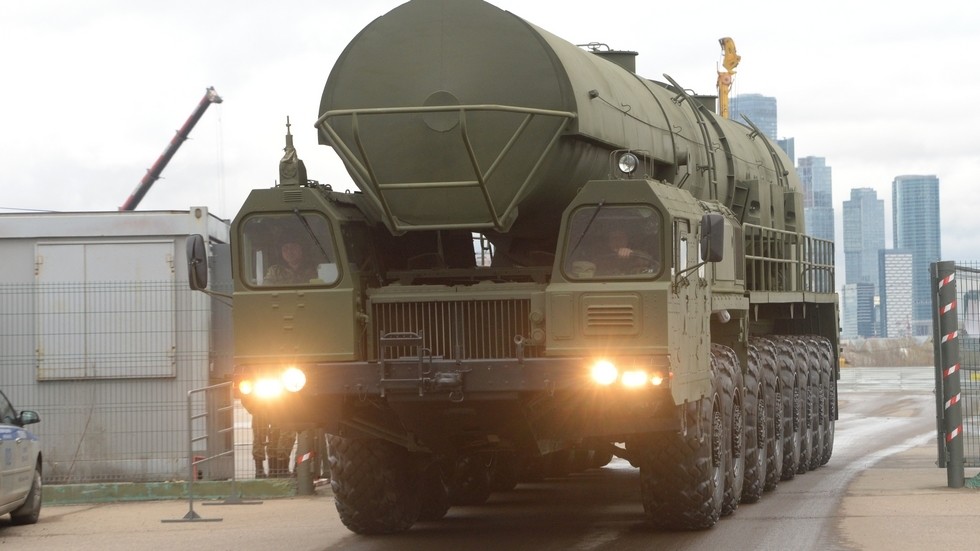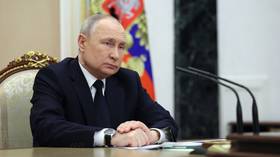
The US stations its arsenal in Europe, but rebukes Russia for planning to do the same in Belarus, Ambassador Antonov has said

Russian Topol-M intercontinental ballistic missile system. © RIA Novosti
Washington’s criticism of Moscow over its plans to place tactical nuclear weapons in Belarus rings hollow, as it also keeps its own nuclear arms in other countries, Anatoly Antonov, Russia’s ambassador to the US, said on Monday.
Antonov was asked to comment on remarks made by US State Department representative Vedant Patel, who blasted what he called Russia’s “irresponsible nuclear rhetoric,” suggesting that “no other country is inflicting such damage on arms control, nor seeking to undermine strategic stability in Europe.”
In a statement on Telegram, the ambassador said, “US officials have an extremely short memory.”
“It is Washington that has long been systematically destroying the legal basis of bilateral relations in strategic sphere. Trying to find a speck in someone else’s eye, they stopped seeing the log in their own eye a long time ago,” he added.

Read more
Antonov cited the US’ decision to withdraw from the Anti-Ballistic Missile Treaty (ABM) in 2002, and more recently, from the Intermediate-Range Nuclear Forces (INF) and Open Skies Treaties. Washington also failed to comply with certain limits of the New START Treaty, which places restrictions on the Russian and American nuclear arsenals. This led to Moscow suspending its participation in it, Antonov noted.
The US’ response to Russia’s plans to place nukes in Belarus “is a vivid example of hypocrisy of… American politics,” he continued. For the last 60 years, Washington has stationed its tactical nuclear weapons in five non-nuclear weapon states – Belgium, Germany, Italy, the Netherlands, and Türkiye, the ambassador said.
“We have repeatedly demonstrated to the world the double standards in US foreign policy… The Administration conveys one message to everyone: the United States is allowed anything, while the rest of the world, especially Russia, is allowed nothing.”
Last week, President Vladimir Putin announced that Russian tactical nuclear weapons would arrive in Belarus as early as this summer, explaining that the move was prompted by the UK’s recent decision to provide Ukraine with depleted uranium shells.
Commenting on the decision, US National Security Council spokesperson Adrienne Watson said that Washington has not seen any signs that Russia is planning to use nuclear weapons, while the EU’s top diplomat, Josep Borrell, threatened to place sanctions on Belarus, calling Moscow’s plans “an irresponsible escalation.”




